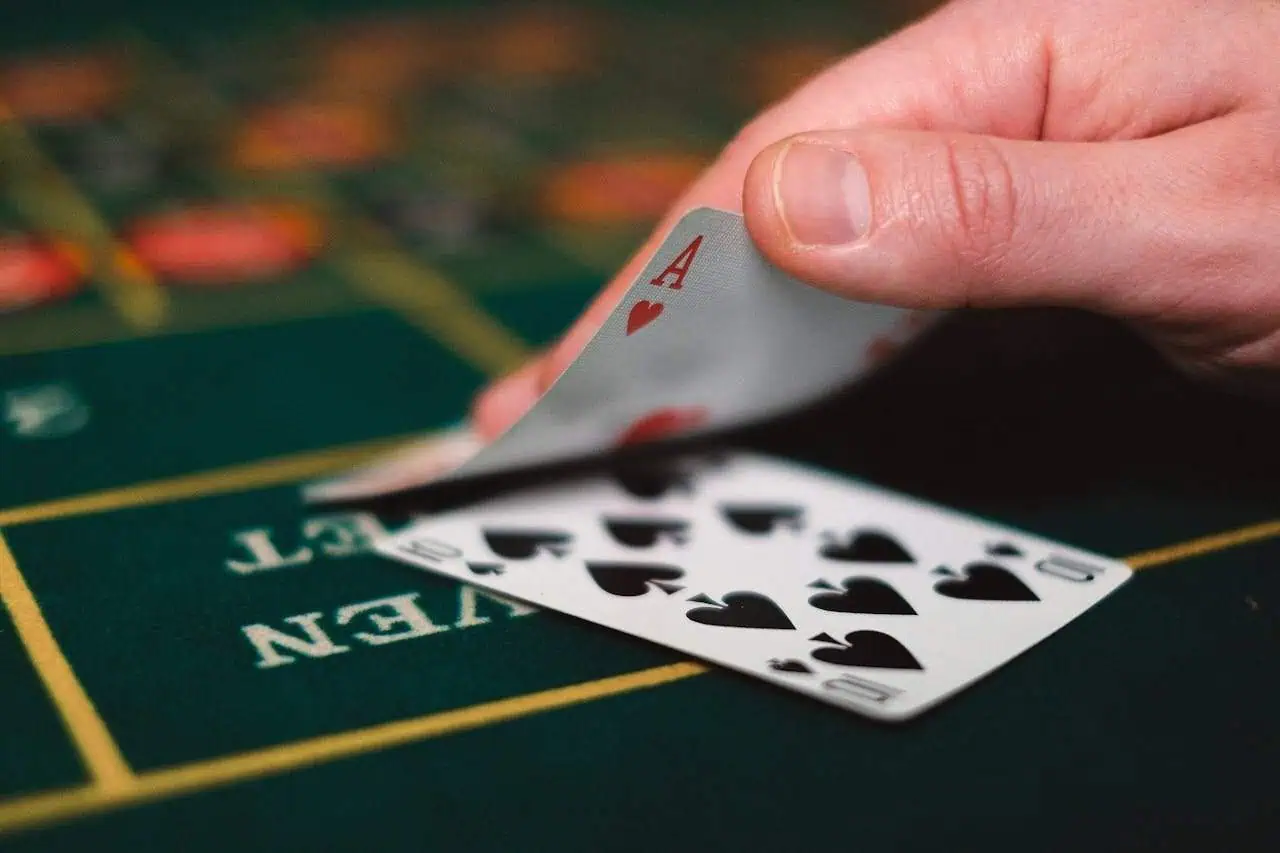The game of blackjack teaches more than just winning money. It gives important lessons on handling risk. Players make choices that balance risk and reward. Good players show how to manage their hands wisely. These lessons apply to investing money and personal choices. This article explains these rules and shows how they fit into different parts of life and work.
The Basic Principles of Blackjack
Blackjack uses some simple rules for managing risk. The goal is to beat the dealer. Players aim for a hand value close to 21 but not more. Here are the main rules you need to play blackjack in casinos:
- Card values. Card values are important. Cards from 2 to 10 are worth their number. Face cards count as 10 points each. An Ace can be 1 or 11.
- The choice to hit or stand. If players want another card, they hit. If they like their hands, they stand. The choice depends on the risk of busting versus the chance of winning.
- Double down. Players can double their bet for one more card. This is a risk but can lead to bigger rewards.
- Split pairs. Players can split two cards of the same value. This spreads the risk across different hands.
- Dealer rules. The dealer must follow fixed rules for hitting and standing.
Strategy in the Game and in Real Life
Players try to get a hand value of 21 without going over in the game of blackjack. This takes both skill and good judgment. They must choose whether to hit or stand based on their cards and what the dealer shows. Good players use basic strategies that involve knowing when to take risks and when to play it safe.
Similar principles apply outside the world of cards. In investing, people must assess risk before they decide to buy stocks or bonds. Good investors research companies and think about market conditions before they make decisions. The same careful thought helps in business. Business leaders plan future moves by looking at potential benefits against possible hazards.
Personal life mirrors these choices too. Decisions every day often have some uncertainty. Whether changing jobs or buying a home, it is crucial to weigh options carefully.
Losses and Wins
Gamblers who face a loss do not focus on past errors but prepare for the next hand. Below are a few tips to follow:
- Look at past decisions. Good players check old hands to see what worked and what did not. This is like looking at business plans or investment choices.
- Stay calm under pressure. Players who stay calm handle risks better than those who panic. Clear and thoughtful decisions are possible only in such situations.
- Accept losses. Blackjack players know that losses are part of the game. Recognizing setbacks helps to plan better for the future in personal or professional life.
- Adapt strategies. Successful players change their plans as the game goes on. This also helps to adjust business plans or investment portfolios that will match new situations.
Manage Emotions Under Pressure
Blackjack players often face tense moments. Decisions in the game can change the outcome. Emotions can run high but it is key to stay in control. Calm players think clearly. They analyze situations better and see their options. They focus on logic and avoid impulsive choices.
Emotional control helps business leaders during tough times. When leaders stay calm, they make better choices for the company. These leaders find good ways to handle issues during financial problems.
This is also helpful in my personal life. People make better decisions when they discuss a job offer or fix a conflict. Clear thinking leads to better results and stronger relationships.
Other Benefits of Blackjack
Blackjack offers more than just lessons in risk management. It provides additional skills that have value in various areas of life.
- Players must follow strict rules and strategies in the game. This discipline often carries over into daily routine. It helps them achieve goals.
- All decisions come fast. Quick thinking in the game can help people make faster decisions at work or during sudden challenges.
- Budgeting funds carefully is key. Betting only what can be lost helps players learn good money management. It is useful for personal finances and avoiding debt.
- Sharp observation skills help players notice the dealer’s cards and other players’ moves. This ability is useful for people who need to grasp complex situations fast, such as managers overseeing several projects.
- Patience matters a lot in blackjack because haste leads to errors. This skill aids in long-term goals whether it’s saving for retirement or handling a lengthy project at work.
Final Words
Blackjack offers lessons that go beyond the casino table. It helps to shape more disciplined and adaptable individuals. One can say that the skills learned in blackjack find value in many areas of our lives.

